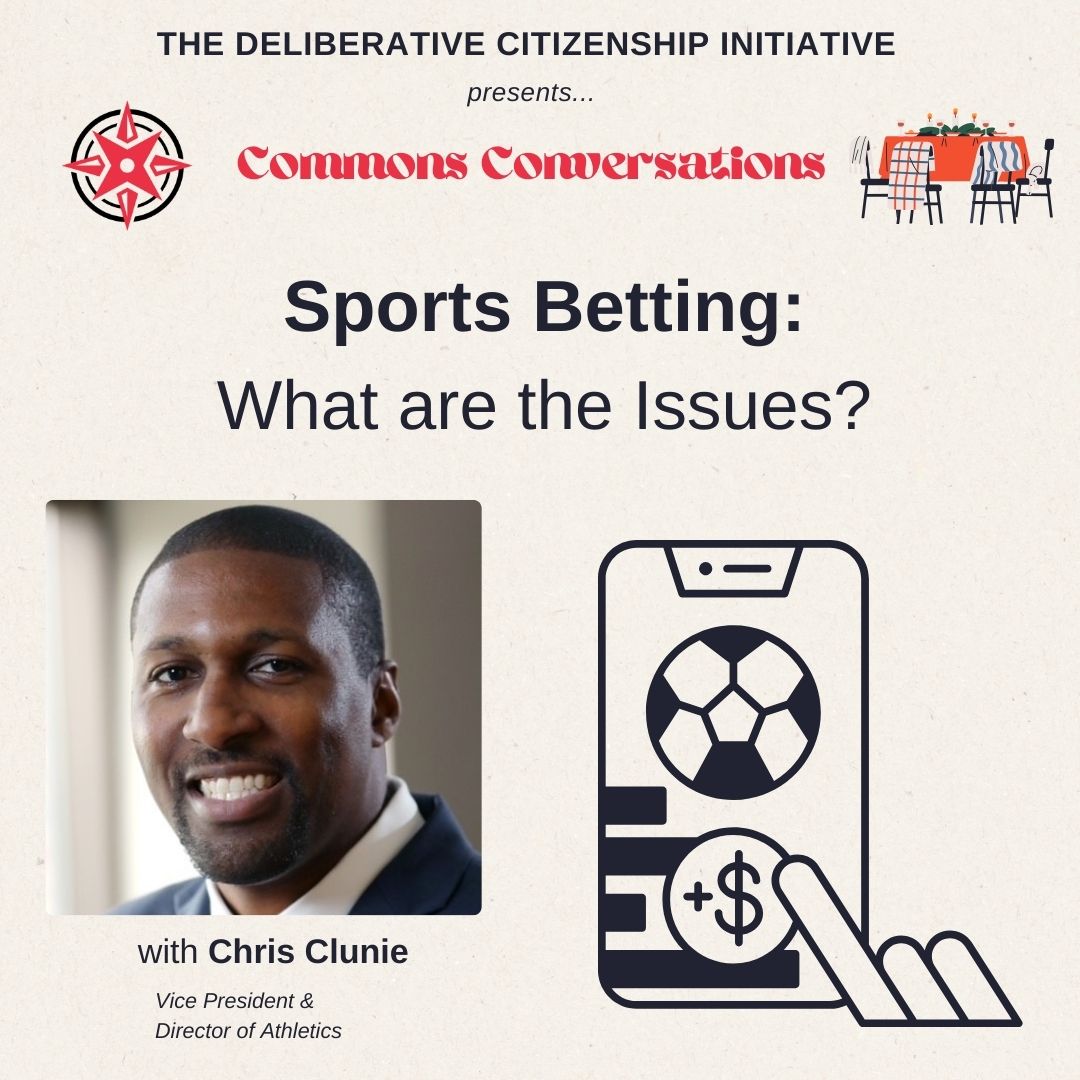
By Graham Bullock, Stephen Walker ’26, and Emre Guvenilir ’25
The DCI’s final Commons Conversation of the spring semester was hosted by Chris Clunie, Athletics Director and Vice President for Athletics. The topic was “Sports Betting: What are the Issues,” and Mr. Clunie started the conversation by explaining the College’s current rules related to sports betting. In short, employees and students are not allowed to 1) engage in any form of betting on sports competitions in which Davidson College athletes are competing, 2) share nonpublic information about Davidson College athletes that is relevant to sports betting, or 3) attempt to influence the outcome of a sporting event that includes Davidson College athletes.
He also discussed how sports betting can erode the sense of community and trust within the campus community if students place bets on their fellow Davidson student-athletes. Doing so can also ruin relationships between those individuals. When the performance of a team or individual can materially affect a classmate or staff members financial well-being, that places enormous pressure on both the athletes and how they connect with others on campus.
After Mr. Clunie concluded his introduction to the topic, the Commons Conversation’s participants weighed in with their perspectives and questions. Some were in favor of sports betting and not regulating it too rigidly, while others were more skeptical and concerned about its recent rapid growth. Everyone weighed the effects of betting on student-athletes on those specific-athletes themselves, and they benefited from insights from two track team members taking part in the discussion. They considered how the practice might harm them personally, especially considering the fact that they are Division I athletes at a school as small as Davidson.
The participants also considered the benefits for people engaged in betting markets, including generating revenue and pure fun, and the limits of those benefits. Some highlighted how enjoyable sports betting is for a lot of people. Others suggested that betting is largely only experienced by groups of a higher socioeconomic status and emphasized that it can be highly addictive and harmful. They talked about how gambling is different from many other types of addictions in that its effects are less visible and that treatment and recovery resources are generally less available.
Mr. Clunie’s contributions to the conversation gave everyone insight into the rationale of different stakeholders considered by the athletics department as it works to develop betting rules for the college community to abide by that ensure they protect athletes and support the Honor Code. In discussing these rules, the participants emphasized the limits of the ability of the College to regulate the practice and the importance of the ethos of the honor code in ensuring sports betting does not adversely affect athletes, students, and teams.
The participants discussed the honor code more generally and expressed a shared sense of declining reverence for the guidelines in the post-COVID era. They then explored possible solutions to this problem and deliberated about what the administration can and should do to address it. One participant argued that grade inflation is contributing to less concern about the Honor Code, while another stated that they came to Davidson because of it. Circling back to the issue of sports betting, especially on student athletes, participants emphasized that students must point out to one another what is and is not acceptable.
The conversation concluded with some discussion about the practice of sports betting more generally, and how people across the ideological spectrum may take issue with it. We highlighted the ways cultural shifts in society at large can impact college campuses in unpredictable and important ways.
